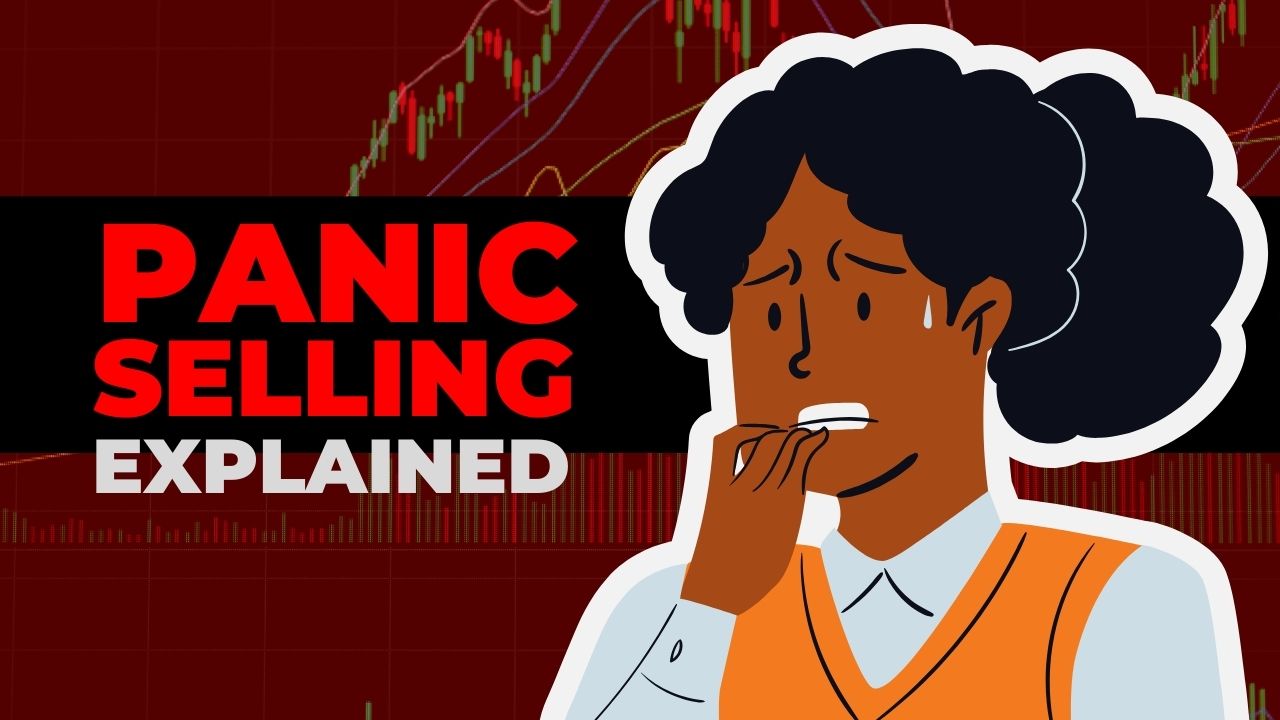Panic selling happens when people quickly sell their investments during a stock market drop because they feel scared and uncertain. This can cause prices to fall even faster. It’s a natural reaction based on human psychology, where people try hard to avoid losing money and protect what they have.
Table of Contents
Basic Human Psychology
- Loss Aversion: People tend to prefer avoiding losses rather than acquiring equivalent gains. This means that the pain of losing money is psychologically more impactful than the pleasure of gaining the same amount.
- Herd Behavior: Individuals often follow the actions of a larger group, especially in uncertain situations. If a significant number of investors start selling their assets, others are likely to follow, fearing they might miss the opportunity to minimize their losses.
Scenario Example: The Great Market Crash
Let’s explore a hypothetical scenario to understand how panic selling unfolds.
Scenario: The Great Market Crash
Imagine a stock market that has been performing well for several years. Investors are confident, and asset prices are high. Suddenly, unexpected news hits the market – perhaps a major geopolitical event or a significant economic downturn. Investors start feeling uncertain about the future.
- Initial Trigger: A few large investors, sensing potential trouble, begin to sell their assets. This initial selling causes a slight drop in asset prices.
- Spread of Fear: Seeing the drop, other investors become anxious. They start thinking, “If others are selling, there must be something wrong.” The fear of losing their investments kicks in.
- Mass Selling: As more investors sell, asset prices continue to fall. The media reports the decline, further fueling the fear. At this point, even those who weren’t initially concerned start to panic. They sell their assets to avoid further losses.
- Market Plunge: The collective panic leads to a significant market downturn. Asset prices plummet, often beyond what the initial news warranted.
Also Read – Why Do Some Companies Have Zero Promoter Holding in India?
The Psychology Behind Panic Selling
Several psychological factors contribute to this behavior:
- Fear of the Unknown: Uncertainty about the future makes people anxious. In financial markets, this translates to fear of losing money.
- Overreaction to Negative News: Negative news has a more substantial impact on human emotions than positive news. This causes exaggerated responses, like panic selling.
- Confirmation Bias: Investors seek information that confirms their fears. During a downturn, they are more likely to notice and believe negative news, reinforcing their decision to sell.
- Regret Aversion: The fear of regretting not selling earlier can drive people to sell, even if they haven’t fully analyzed the situation.
5 Important Points to Know
- Be greedy when everyone is fearful, and be fearful when everyone is greedy: Fear causes people to miss the opportunity of buying fundamentally good companies. Stay calm and look for value during market downturns.
- Do your own research: Always make informed decisions based on your own research. Relying solely on tips or market rumors can lead to bad investments. Understanding a company’s fundamentals is important.
- Invest for the long term: Patience pays off in the stock market. The power of compounding works best over time, so focus on long-term growth rather than short-term gains.
- Diversify your portfolio: Never put all your money into one stock or sector. A diversified portfolio helps spread risk and protects against unexpected downturns.
- Don’t let emotions drive your decisions: Market volatility can trigger fear or greed, but it’s important to stay calm. Stick to your investment strategy and avoid reacting impulsively to short-term market movements.
Conclusion
Panic selling happens because of how our minds work. Understanding this can help investors control their emotions during times when the market is falling. It’s normal to want to avoid losing money, but making decisions based on fear or following what everyone else is doing can lead to bad financial choices.
By being aware of these feelings, investors can stay calm, think clearly, and avoid the mistakes of panic selling.
Join our YouTube channel
